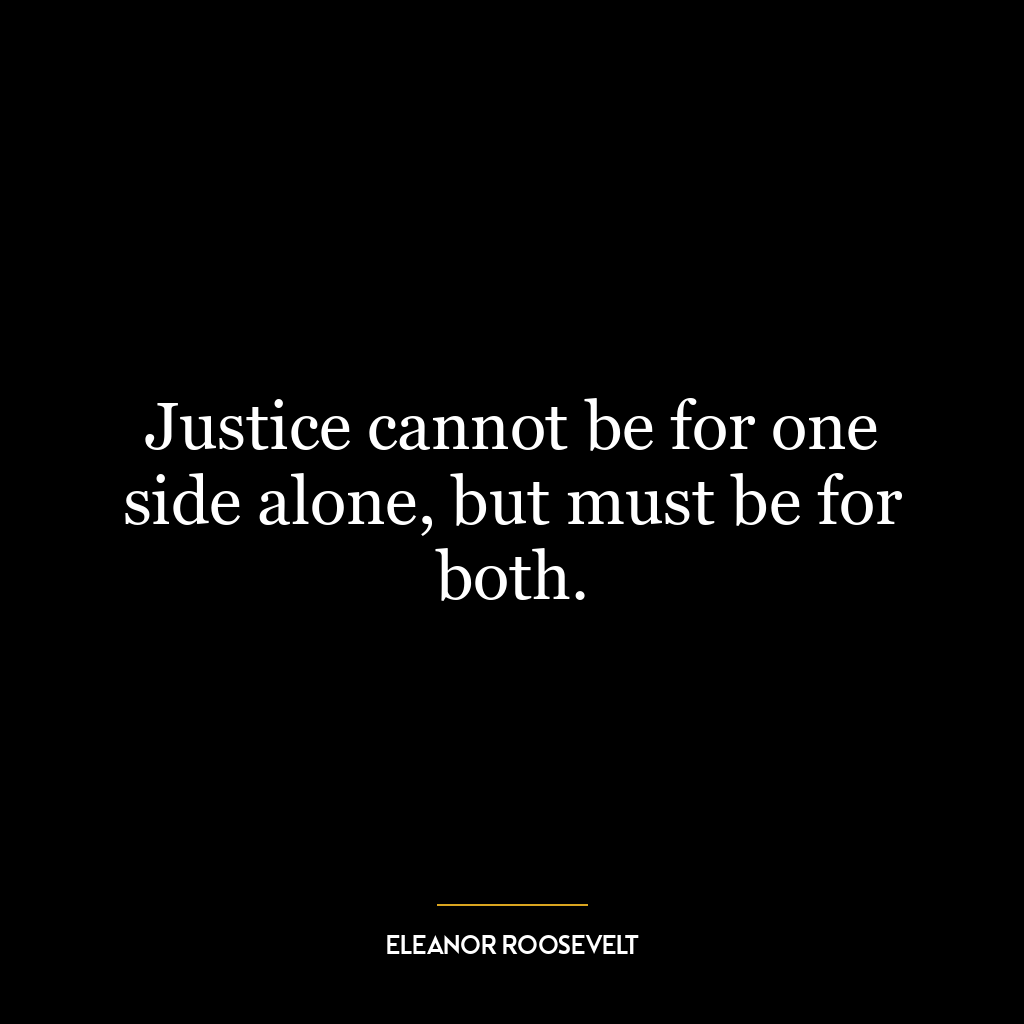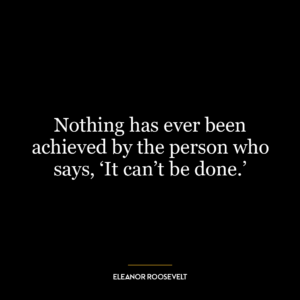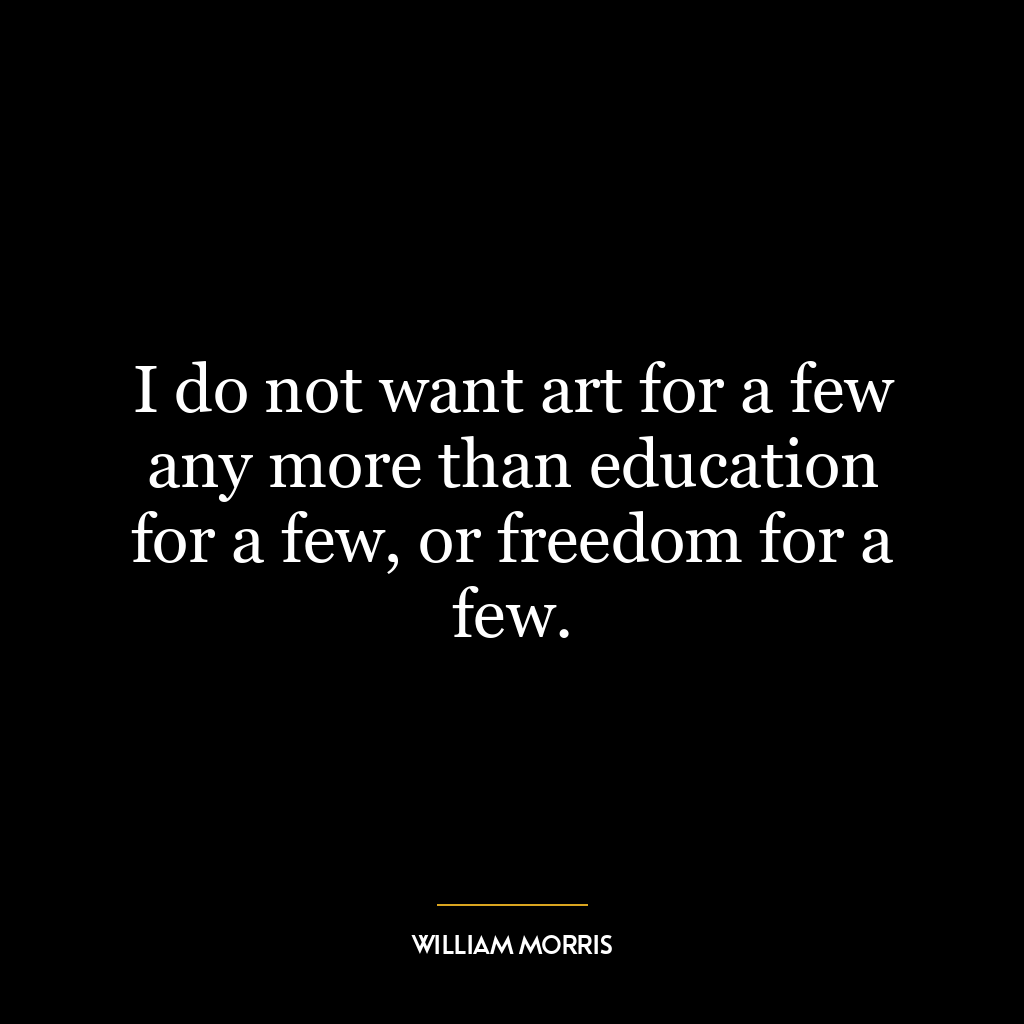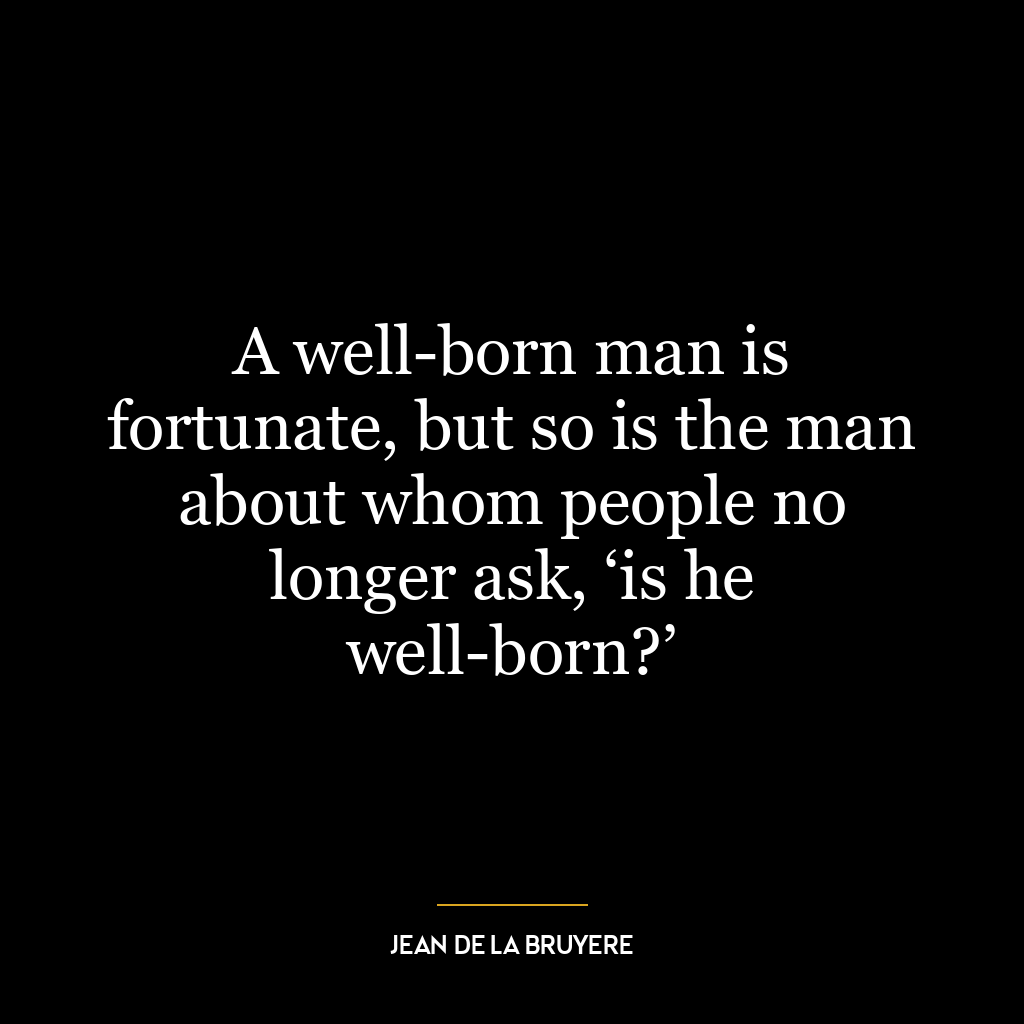Justice cannot be for one side alone, but must be for both.
This quote implies that justice is not about favoring one side over the other but about ensuring fairness and equality for everyone involved. In essence, justice should not be biased or one-sided, but rather should be impartial, treating all parties equally without favoritism or discrimination. It’s about maintaining a balance, where everyone gets what they rightfully deserve, regardless of their status, power, or influence.
In the context of today’s world, this quote can be applied in many areas such as politics, law, and social issues. For instance, in politics, justice should not favor one political party over another but should ensure that all parties are treated equally under the law. In social issues, justice should not be selective but should ensure that everyone, regardless of their race, religion, gender, or social status, is treated fairly and equally.
Additionally, this concept can also be applied in personal development. It encourages individuals to practice fairness and equality in their dealings with others, whether in personal relationships, professional settings, or social interactions. It promotes the idea of treating others as you would want to be treated, thereby fostering mutual respect, understanding, and cooperation. It also teaches individuals to stand against injustice, not just when they are the victims, but also when others are being treated unfairly.
In a broader perspective, this quote is a call for a fair and equitable society where justice is not a privilege of the few but a right for all. It reminds us that for justice to prevail, it must be unbiased and inclusive, embracing both sides of the coin, and ensuring that everyone gets their due without prejudice or favoritism.















